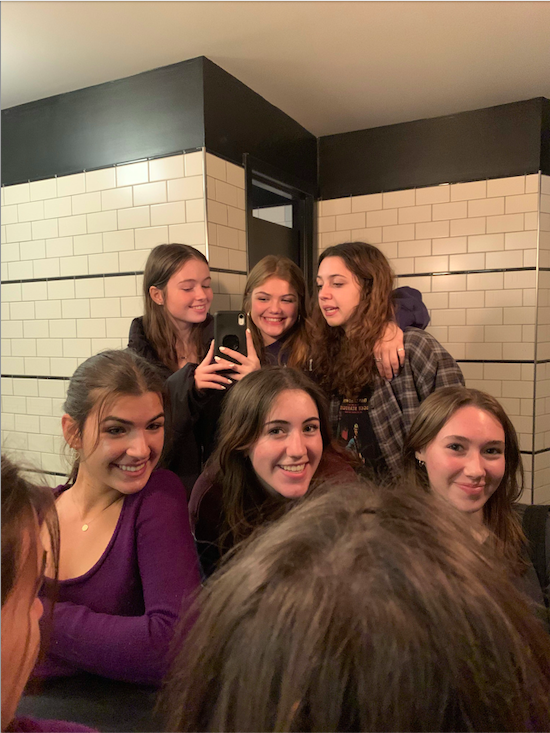Seniors Reflect and Regret
Seniors look back on their time at the school in an attempt to keep underclassmen from making the same mistakes
Seniors who frequently hang out together
Handed to every senior at the beginning of the year was a half-blank sheet of paper marked with roughly 28 classes and corresponding rankings — their high school transcripts. Whether students were validated or discouraged by this information, many wished they could make a few changes to their transcripts.
The extensive course catalog can be unnerving for some students, and the intense workload may fuel anxiety. After taking many of those classes and interacting with peers, seniors reflected on how their choices impacted their social and academic careers.
“I definitely should have gone easier on the math classes but gone harder in every other class,” senior Michael Newman said. “Math is just awful.”
Newman was pleased with his GPA. Despite finding room for improvement, he understood his strengths and weaknesses and felt his grades reflected them. However, he admitted he would have done things differently outside class.
“I definitely should have been more extraverted,” Newman said. “I didn’t gain the confidence to be more outgoing or talk to people until senior year.”
Newman emphasized the value of social interactions, which he learned from the isolation of the pandemic. Senior Tenley Kennett had a similar experience, as she moved to Belgium two weeks into her freshman year, only to return during the pandemic and online instruction.
“While I was gone, everybody got closer, made new friends, etcetera, and when I came back, I didn’t really have a group,” Kennett said. “I didn’t feel like I could get into any of the groups because I was always the new one.”
According to Kennett, she eventually found her place at the school but regrets how long it took. She also explained how she sometimes lacked effort by not participating in school or applying herself to the fullest extent.
“I would have probably done cheer more years,” Kennett said. “I would have been involved in more clubs, I would have taken harder classes, and I would have strove for more because now, looking back, I did work hard, but I feel like I could have worked [harder].”
Senior Alexa Brooke also reviewed past grades and felt remorse over not studying for advanced placement (AP) exams, both of which would have saved her time and money in college. However, Brooke did not get hung up on this, as she realized that many of these evaluations have little long-term validity.
“Your happiness and well-being is more important than getting an A on a test,” Brooke said. “If you get a bad grade on a test, you can still get a 4.0 GPA, it doesn’t matter. Literally, everything that you think is going to make or break it — It doesn’t.”
Brooke emphasized her disdain for traditional grading. Beyond numerical assessment, she sees a well-rounded high school experience as one filled with friends, extracurriculars, sports, and downtime.
“A 100 is the same as an 89.7,” Brooke said.
Through regretful sports practices and missing work, seniors left freshmen, sophomores and juniors with optimistic advice. Although it can be difficult at times, Brooke believes education is important but should not necessarily be valued above all else and should not encompass the entire high school experience.
“I’m not saying to procrastinate your work. Still, be diligent,” Brooke said. “But, I’ve never, ever canceled plans because I have homework. I think having a strong social life and balancing it with school will make you perform better in school and just be happier.”
What did you think about this story? Do you have any suggestions for improvements or other articles that you would like to see? Please use the contact form to communicate with us! (Keep all information school-appropriate)
https://docs.google.com/forms/d/e/1FAIpQLSeRYRWwLLzvs2rqwHSGdr-DQRvxhUSx9UcaXypXxnvVuCqwyA/viewform










